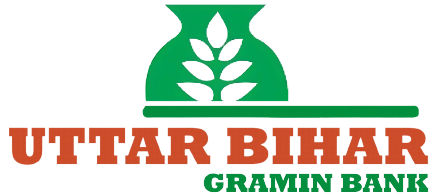Bihar Gramin Bank General Savings Account is a simple, practical choice for everyday savers in rural and semi-urban areas. It combines basic protections with common bank services so you can store cash securely and move money when you need to. Below I explain who can open the account, the documents you need, how transactions work, and the facilities that make this account useful. I also explain why each feature matters so you can judge the fit for your needs.
Who can open
The account is meant for Indian residents in the bank’s operational area. Typical eligible customers:
- Individuals (adults) who live or work in Bihar Gramin Bank’s service area.
- Minors — accounts for children are allowed but need a guardian to operate until majority.
- Joint accounts — two or more account holders, often with either-or or survivor operation options.
- Sole proprietors for their business banking needs (subject to KYC and business proof).
Why this matters: RRBs focus on local inclusion. If you live in the bank’s area, opening the account is usually straightforward and faster than city-only banks.
KYC documents
To open the account you must submit identity and address proofs. Commonly accepted documents include:
- Identity: Aadhaar card, PAN card, Voter ID, Passport, or Driving License.
- Address: Aadhaar, Voter ID, Passport, or recent utility bill (electricity, phone) in your name.
- For minors: Birth certificate or school ID plus guardian’s KYC.
- Photograph and signature or thumb impression: recent passport-size photo; minors/illiterate customers may sign with thumb impression plus witness details.
Why this matters: Complete KYC speeds account opening and allows linking to government schemes and subsidies. Aadhaar-based e-KYC often shortens the process.
Nomination
Nomination is allowed and usually encouraged. You can name one or more nominees at account opening or later by submitting a nomination form. For a minor nominee, provide the nominee’s guardian details.
Why this matters: A valid nomination makes it simpler for family to claim funds after the account holder’s death. It reduces paperwork and speeds settlement.
Transaction rules
- Deposits: Cash and cheque deposits are accepted at branch counters. Cheques credited after the usual clearing cycle.
- Withdrawals: Cash withdrawals through branch teller, ATM (if card issued), and bank kiosks. Branch withdrawals may require passbook or withdrawal slip.
- Transfers: NEFT/RTGS/IMPS services are usually available, subject to the bank’s cut-off times and transaction limits.
- Standing Instructions (SI): You can set up automatic transfers for recurring payments (EMIs, SIP-like transfers to other accounts) where the bank supports SIs.
Why this matters: Multiple transaction modes let you use the account for daily cash, bill payments, and automated transfers. Standing instructions reduce missed payments.
Cash and transfer limits
Limits can vary by account variant, branch, and whether you use ATM or banking channel. Typical practical points:
- ATM daily cash withdrawal limits often range between ₹5,000 and ₹25,000 depending on card type.
- IMPS allows instant transfers 24/7 but individual transaction caps are set by the bank and RBI guidelines.
- NEFT/RTGS timings and limits follow the bank schedule; RTGS is for higher-value transfers while NEFT suits smaller sums.
Why this matters: Know your limits before large transactions. For urgent large transfers, plan RTGS or visit the branch during working hours.
Passbook & withdrawal norms
Account holders typically get a passbook that records deposits, withdrawals, and interest credits. Branches update the passbook at teller counters. Some branches offer mini-statement printing at ATMs.
- Carry your passbook and ID for large cash withdrawals at branch counters.
- Minor accounts often require the guardian’s presence for withdrawals.
- Keep the passbook safe — it is proof of transaction history and useful for loan applications.
Why this matters: A passbook provides a physical, tamper-proof ledger of transactions. It is especially useful where digital statements are not regularly used.
Facilities (cheques, DICGC, ATM, NEFT/RTGS, SI, lockers)
- Cheque book: Many savings accounts come with cheque facility. Cheque clearing timelines follow the normal banking schedule.
- DICGC insurance: Deposits are insured by the Deposit Insurance and Credit Guarantee Corporation up to ₹5 lakh per depositor per bank. This covers principal plus interest.
- ATM/debit card: Debit cards linked to the account let you withdraw cash, check balance, and pay at POS terminals.
- NEFT / RTGS / IMPS: Electronic fund transfers are available. Use NEFT for routine transfers and RTGS for higher-value same-day settlement.
- Standing instructions: Set up auto-debits for recurring payments where supported.
- Lockers: Lockers, if available, are provided at selected branches subject to availability and rent. Locker services are not universal at all rural branches.
Why this matters: These facilities combine safety (DICGC), convenience (ATM, electronic transfers), and flexibility (cheques and SIs). Lockers add security for valuables but are branch-dependent.
Online opening
Bihar Gramin Bank may offer online account opening with Aadhaar-based e-KYC and mobile OTP authentication. Typical steps:
- Choose the savings account type on the bank’s website or app.
- Submit Aadhaar number for e-KYC and an OTP-based verification.
- Upload or enter basic details and nominate a person, if desired.
- Make the initial deposit online or at branch to activate the account.
- Complete any pending biometric verification at the branch if required.
Why this matters: Online opening saves travel and time. But final activation may need a branch visit for biometric checks, photograph, or cheque book collection.
FAQs
- Q: What is the minimum balance?
A: Minimum balance depends on the specific account variant. Basic rural savings accounts often have low or nil balance requirements. Confirm with your branch before opening. - Q: How is interest credited?
A: Interest is calculated on the daily closing balance and credited quarterly. The bank announces the applicable rate; rates can change with RBI policy. - Q: Can I change the nominee later?
A: Yes. Submit a fresh nomination form at the branch to update or cancel a nomination. - Q: I lost my passbook — what now?
A: Report at the branch to block misuse if needed. The bank will issue a duplicate or print statement on request. - Q: Are deposits safe?
A: Yes. DICGC insures deposits up to ₹5 lakh. For sums above that, consider spreading deposits across multiple banks. - Q: Do I get a cheque book and ATM card together?
A: Often yes, but cheque book issuance may require a minimum account period or balance as per branch rules. - Q: Can I operate the account from outside the bank area?
A: You can use ATMs, internet banking, and electronic transfers anywhere. For some services, like locker access, you must visit the branch where the locker is located.
In short, a Bihar Gramin Bank General Savings Account gives you a low-cost place to save, backed by deposit insurance and basic electronic services. It suits individuals and families who need a secure, locally accessible account with standard banking facilities. For exact limits, charges, and current interest rates, check with your branch because local rules and service availability can vary.

Kritti Kumari is a banker and MBA graduate who writes about banking, finance, and customer-friendly services. She simplifies complex financial products into easy guides, helping readers understand Bihar Gramin Bank’s offerings and make smarter money decisions.

